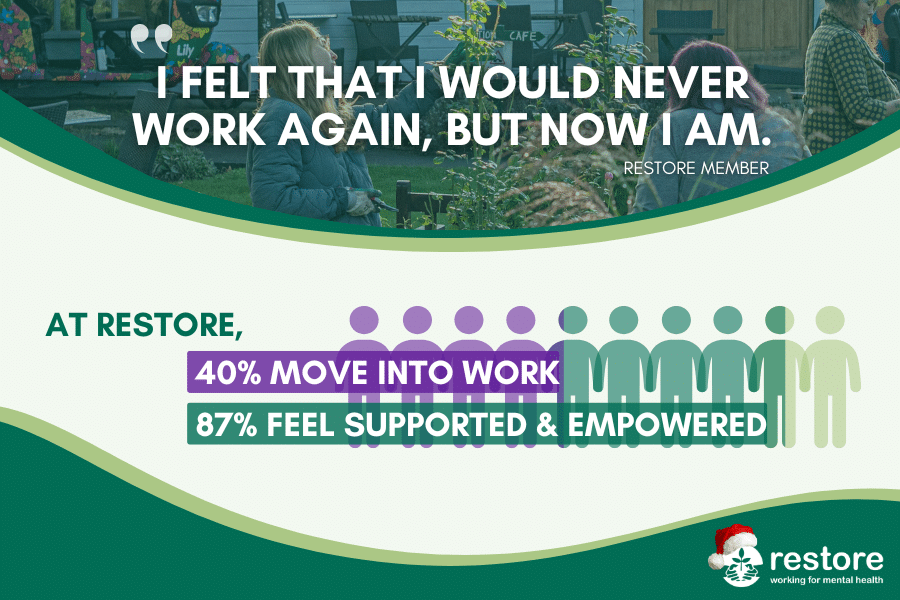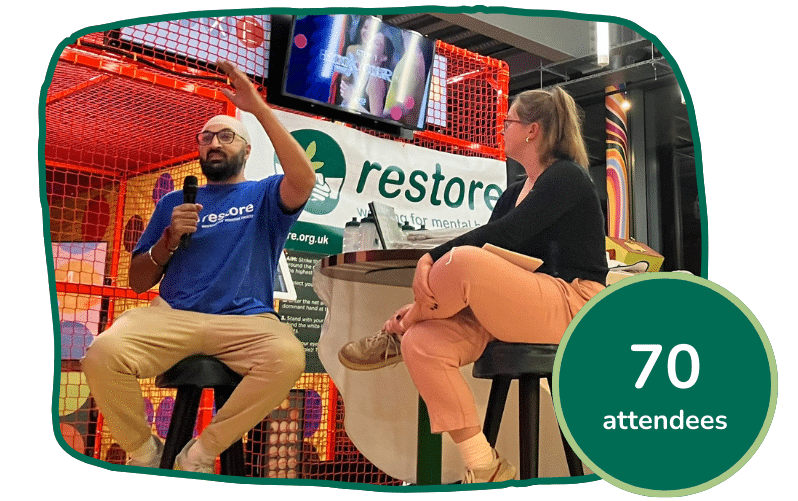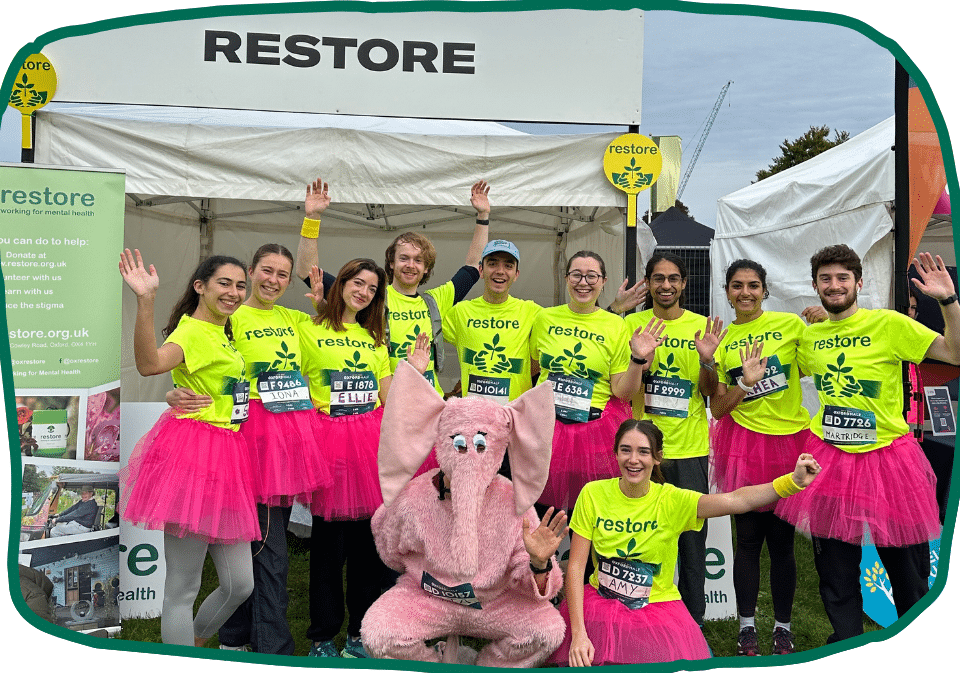
New Christmas cards and Calendars
28/11/2016
Christmas Opening Times
15/12/2016Volunteering and Recovery – The Inside Story

On my first day as a volunteer, I sit opposite a young woman and we get into conversation. It is her first day too, as a client. We are both a bit apprehensive about how we will find things.
Restore is a charity and, finding times challenging and relying a great deal on volunteers, they have decided to invest in their volunteers to get the best out of them. They devised a comprehensive training and induction programme for volunteers for which they were awarded “Investors in Volunteers” in April 2015.
Restore provides a full job description for volunteers, and after sending in an application form, I was invited for an informal interview. Then, I was required to complete a Disclosure and Barring Service check and attend a training day which covers Restore’s history, mission and values, how referral works for clients, and what is expected of volunteers. All the important policies are covered too, so you are fully briefed. Volunteers are also required to complete a two-day Mental Health First Aid course, which was an amazing piece of training designed to equip volunteers to support members with their mental health issues.
As a volunteer, I join the staff at 9.15am for a planning meeting to hear about any new people starting that day, any particular issues that day and to plan the activities for the day. There is usually a gardening group, a craft group and a group cooking lunch for everyone.
At 9.30 am, we meet with the clients or “members”. We describe plans for the day and find out who would like to do what. Members are free to choose an activity, the same each week, or varying it according to their mood.
I usually volunteer in the garden, as a keen gardener, and support any one who would like to work on the allotments there. We have 10 vegetable beds, a soft fruit area, an orchard, some willow coppice and some flower beds around the buildings. In addition, to aid cultivation, there is a propagation room and a poly tunnel. There is usually a core of 4-6 members who join me for gardening all year round and in most weathers. I’ve been volunteering for a year now and we can usually find something constructive and garden-related to do on even a rainy day.
Gardening is an activity which provides very many different types of activity which can suit almost all needs. Watering plants is fairly light physical work which gives members a feeling of nurturing plants. Many members really benefit from the physical exercise of digging, turning compost, weeding and going home physically tired and able to get a good night’s sleep and over time build up good fitness and stamina. Planting seeds or transplanting seedlings need fine motor skills and concentration which can be a useful distraction from members’ usual daily worries and provide hope of new things in the future. There is also great satisfaction to be gained from seeing seeds germinate, grow, need potting up and planting out; another great nurturing opportunity. Finally, there is the thrill of harvesting and eating the produce – nothing ever tasted so good! Many gardening activities need team work which can be a very positive experience for members. It is great to see someone who has tended to work alone start to get involved in team work, such as netting a cabbage patch against pigeons.
After the morning meeting, the day is designed to provide structure, a bit like a work day. Members work at their chosen activity until morning break and then continue until lunch. The cooking group produces a tasty, hearty lunch of either a soup and main course, or a main course and pudding. Often ingredients are supplied from the vegetable garden that day. Eating lunch together is an important part of the day as many members don’t get to share and enjoy food with others. It also provides encouragement to eat healthily. After a good lunch, it can be hard to get going again for more activity until the end of the day at 2.30pm.
After tidying up, members share the successes and challenges of what they have been doing and they record their achievements in a Record of Achievement file. Most members leave at 3.00pm but they can stay on and do self-supported activities if they wish. Staff and volunteers have a debriefing meeting to discuss how things went and how members were doing and to plan for the next week.
Members come from a huge range of backgrounds, some have woodworking, gardening or cooking experience, but for many the point is to learn or re-find an old skill to gain self-esteem and confidence. I’ve come across gifted people with a lot of great skills which they bring to the activities at Restore or which they find when given new opportunities and support from staff and volunteers.
The social side of being at Restore is very important to members too. Many members have become very isolated by their illness and some struggle at first to be with a group of people for the day and can be withdrawn. Working at activities in small groups makes it much easier for them to get to know others and make new friendships which can make a huge difference to their lives. Staff and volunteers work hard to make a friendly, relaxing, welcoming and inclusive atmosphere. Each day at Restore feels like being in an extended family.
As a volunteer, I soon learnt that every Monday would be different and plans made in the morning wouldn’t always be realised. We always got some good, useful gardening done, had fun and enjoyed each others company. The support goes two ways between members and staff/volunteers. I learnt a great deal about aspects of life which were new to me, about myself, and about what it is like to live with and recover from mental ill-health.
Members make progress every week. They move from the fairly low pressure of cooking group lunch to the kitchen at the Garden Café at Manzil Way and dealing with more pressure and the public. Some start volunteering for other organisations. The young woman I met on my first day was a real organiser. Soon, she was not only doing craft but reorganising and tidying the craft corner. Then, she started tidying the shop area. There was no stopping her and she co-opted others to help her which was great. After several months, she was being supported with job applications and job interviews and was back at work again.
Clare Farley, November 2016





